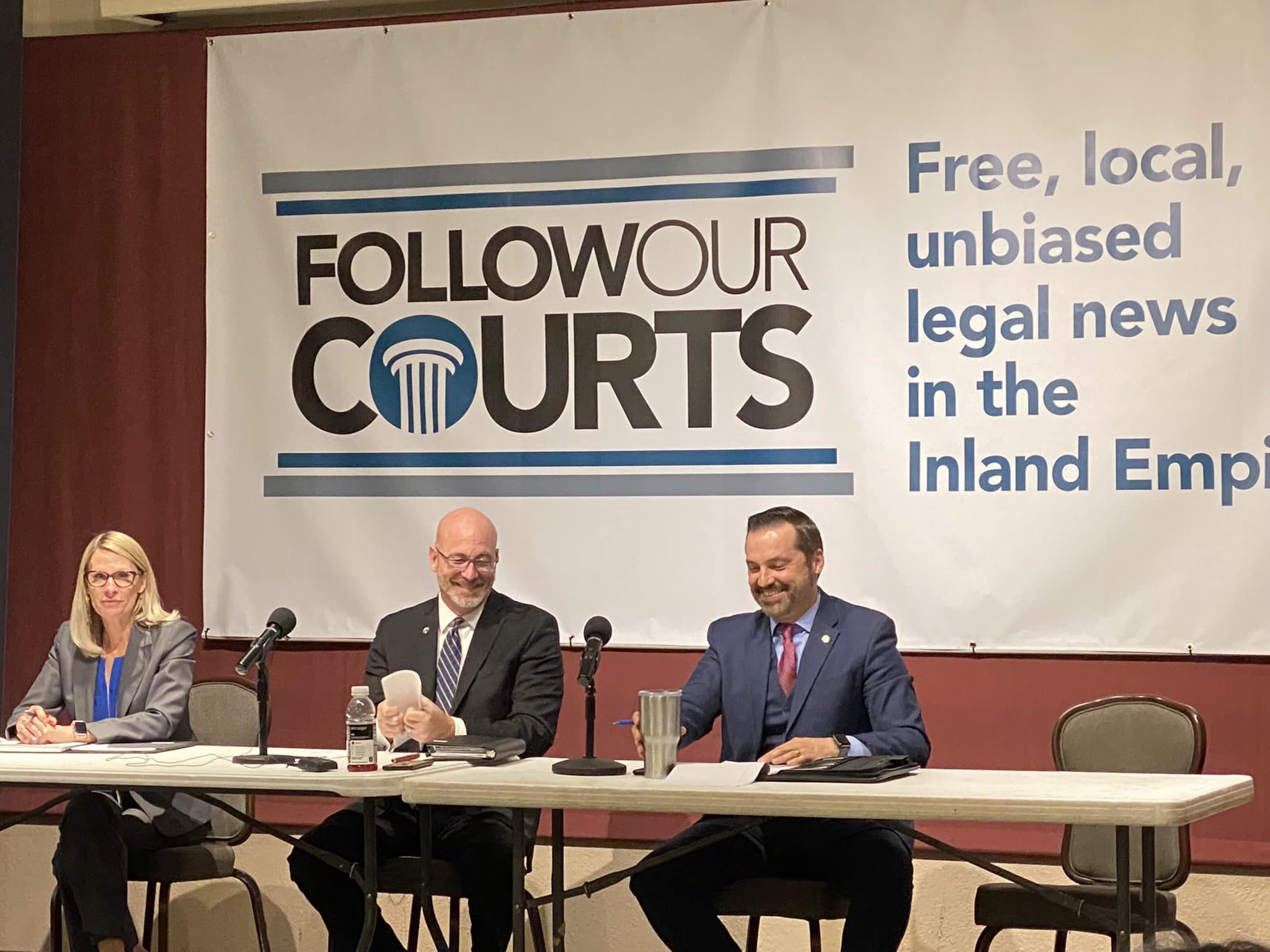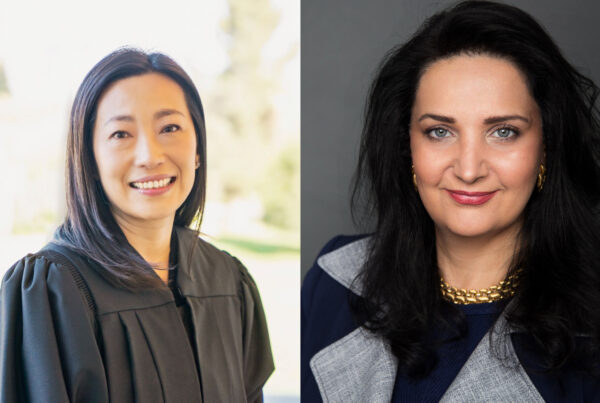Temperance, work ethic, knowledge: three of San Bernardino’s four judicial candidates made their argument for your vote at an open forum hosted by Follow Our Courts April 27.
The free, public event was co-sponsored by the University of Redlands, who provided the venue; the League of Women Voters, who provided promotion; and McCune Wright Arevalo, who supplied staff and funding.
Voters will choose June 7 between criminal defense attorney James McGee and Supervising Deputy District Attorney Melissa Rodriguez to join the bench of San Bernardino Superior Court. Voters will also choose between Deputy District Attorney David Tulcan and Public








